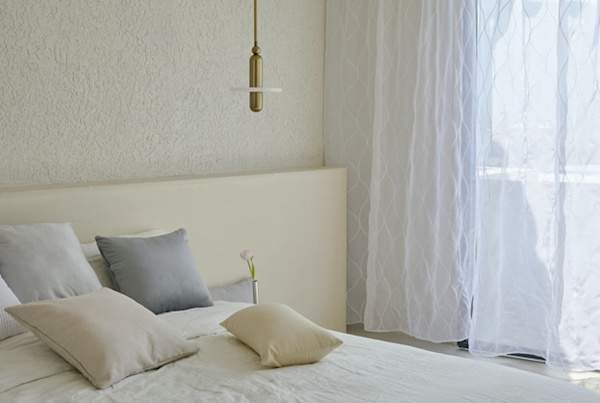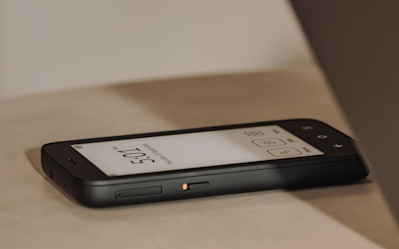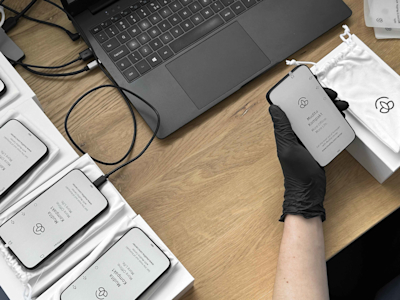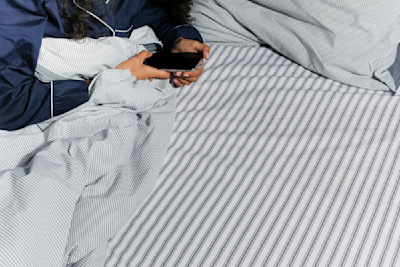
Q& A with Dr. Dietrich Hasse, an expert in Sleep Medicine
Mudita is a new, boutique company whose mission is to design consumer electronics which put the health and well-being of our users first. We hope our products will help to create balance and improve the quality of people's lives. We're big fans of technology, however, our mission is to support people in a more mindful use of it.
We began working on a solution dedicated to sleep, over 2 years ago, once we realized that we were not able to find a satisfactory device, focused solely on improving sleep quality. We were looking for a device which would allow us to completely remove smartphones from our bedrooms.
This year, we’ll be releasing two alarm clocks: Mudita Bell- a classic alarm clock with beautiful alarm melodies and Mudita Harmony- an E Ink alarm clock with more functions to maintain healthy sleeping habits.
Our products are not medical devices, however, from the beginning we were determined to develop something which will help people improve their sleep quality.
We have already consulted with various sleep specialists, and we’d love to share the opinion of sleep expert, Dr. Dietrich Hasse, about what constitutes good sleep and get his opinion about our unique solution.
1. What are the problems related to sleep that you see are the most prevalent in today's world?
The most common problems are disturbances in breathing and sleeping (sleep apnoea), associated with daytime sleepiness and problems falling asleep and staying asleep (insomnia).
2. Do you see a problem with people waking up and falling asleep with a phone and using them as alarm clocks?
There is no reliable data on the effects of mobile phone radiation on humans. Presumably, however, exposure to radiation from mobile phones is not healthy. If you test the patient's kinesiology with the mobile phone, they are all weak. But of course, this is not orthodox medicine. In addition, looking at the screen in the evening is not healthy for the melatonin balance because of the blue light components.
3. During our consultations with sleep experts, they often mentioned the problems with snoozing, that’s why we decided to introduce a snooze chime- a subtle sound that will ring every minute to prevent you from deeply falling asleep again and reduce the amount of times you hit “snooze”. What do you think about it?
Personally, I am an opponent of napping. Either you sleep or you are awake. The bad habit of letting your alarm clock wake you up five times only robs you of unnecessary sleep time. It's a question of discipline, whether I get up at the first ring.
4. In order to make the waking-up more natural and a process instead of using one alarming sound - we added a gentle pre-wake up sound that will start together with the light, 10 minutes before the alarm, created for the purpose of awakening your subconscious mind to gently prepare you to get up with the main alarm. What do you think about this idea?
I think the idea of basically being woken up by light is nice. There are very different types. What doesn't exist is that I can individually set the times for "light on" and "sound on" independently of each other. For example, I would be someone who would like to turn on the light 10 minutes before getting up and not dim it up.
5. Covid and sleep. Are there any new trends and phenomenons that are being observed in the past 1,5 years? On one hand, our lives became more regular- during strict lockdowns, no late nights with friends at the bar, no changing time zones when flying to a different continent. It got easier to stick to routine and regular wake up times. However, it’s just one of the aspects, many people were experiencing more stress, anxiety and being lonely, also because of the restrictions they ended up exercising less. I know it’s case by case, but do you have any observations or data to share with us how covid, lockdown and restrictions influenced how we sleep in general?
From my point of view as a psychiatrist, I see above all, a significant increase in anxiety, which does not have a good effect on sleep overall. Of course, life was then more regular due to the lockdowns. But here, too, there are of course individual differences, whether I lived in the countryside, for example, or in a two-room flat on the twelfth floor.
6. What is your opinion on applications tracking our sleep - do you see it helping people having problems sleeping?
I think such apps are helpful, but for some patients, especially the anxious compulsive ones, constantly monitoring their sleep is not necessarily beneficial.
7. If you were to give one recommendation on how to improve your sleep quality- what would that be?
Regularity and serenity.
8. Sleeping longer during the weekends. Many people think they need to make up for the amount of sleep they got during the week- what’s your take on that? Should we stick to the same wake-up hour? Some say that the change of the wake up time within one hour from it doesn’t make a difference- do you agree?
Every time shift has an influence on the circadian rhythm. And if I sleep more than 2-3 hours longer at the weekend, this has an influence on the circadian rhythm. The longer I am awake the less my body cares. However, if I already have sleep disorders, I should go to bed as regularly as possible.
What if I go out and go to sleep at 4 am and our regular wake up time is 7:30, getting just 3:30 will make me tired for the rest of the day but won’t deregulate my circadian rhythm, so in the long run it’s a better strategy?
That depends on how I sleep in general. People over 50 will rarely go dancing until four o'clock every Saturday night, so the question is less relevant here. But again, if I already have insomnia, I should refrain from such escapades. However, it is more advisable to get a good night's sleep than to have a sleepless day.
Related stories

Why Phones Without Internet Are Trending
Do you know why phones without internet are trending? Learn how Mudita Kompakt's E Ink display and offline mode balance functionality with digital wellness.

It’s Happening! Mudita Kompakt Has Started Shipping!
It’s happening! Mudita Kompakt has officially started shipping. The first phones are on their way to backers. Get all the exciting details in our latest update.

The Digital Detox Guide for Better Sleep
Struggling with poor sleep? Discover how a digital detox can improve sleep quality, support better sleep hygiene, and help you sleep better naturally.
If you'd like to receive the best stories from our blog, keep up to date with our progress and get notified about our product releases and special discounts.